Featured
Learning to live with Covid-19
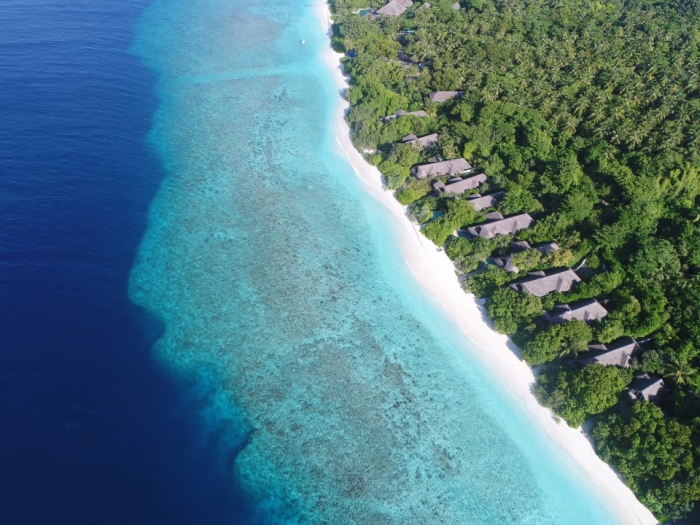
By Sonu Shivdasani
As lockdowns go, we mustn’t complain. My wife, Eva, and I have been marooned on Soneva Fushi — the luxury resort we own in the Maldives — for the past four months, alongside some 70 foreign guests, who stayed on as the country closed its borders, rather than risk going back home. Free to roam our castaway island paradise, life tends to revolve around morning yoga, afternoon swims, and sunset cocktails overlooking the turquoise waters of the Indian Ocean.
The other day, as I was taking my swim in the lagoon, I came eyeball-to-eyeball with a two-metre-long reef shark. In my twenty-five years living on Soneva Fushi, I have never seen such a big shark swimming so close to shore. In other parts of the world, lockdowns have led to goats, swans and wild boar taking over village greens and town centres. In the Maldives, it’s the (harmless) sharks, dolphins and manta rays that are enjoying a holiday without humans.
As enjoyable as my lockdown has been, it is surely time for it to come to an end. Very few have been as fortunate as I. For most people, in the Maldives and other countries that imposed drastic restrictions to contain the virus, the economic and social costs of being locked down have been terribly high.
Moreover, as the weeks pass, and our understanding of Covid-19 improves, it is clear that, while potentially lethal for older people and those with underlying health complications, for healthy, younger people, the chance of dying from the virus is vanishingly small. In badly hit parts of New York City, for instance, where infection rates were as high as 25 per cent, for those under 45 years the survival rate was 99.98 per cent.
As new information pours in from around the world, and we develop a more nuanced understanding of Covid-19, our measures to control the virus must also become more sophisticated. General lockdowns and international border closures – which are devastating huge chunks of the economy, and the lives and livelihoods of hundreds of millions of people – don’t make sense, when rapid testing, contract tracing, and good hygiene are so effective at preventing the virus’s spread — and when the virus poses such a tiny threat to young and middle-aged people.
The greatest fear is fear itself.
Franklin D. Roosevelt
Perhaps one of the biggest obstacles to easing the lockdown is fear. The world’s newspapers and TV stations have gorged on the coronavirus, producing blanket coverage of mortality rates and other frightening details. Not surprisingly, the ‘danger indicator’ that sits in the left side of our brains remains on high alert. Like a thermometer, once the danger indicator rises, it takes a lot of shaking with facts and reason to bring it back down.
To quote Hans Rosling: “We need to learn to control our drama intake. Uncontrolled, our appetite for the dramatic goes too far, prevents us from seeing the world as it is, and leads us terribly astray.”
Here are some facts to reduce our intake of drama, and temper our fears of Covid-19:
- Due to a misunderstanding of the true extent of the infection in China, initial projections of a 3-5 per cent fatality rate were far too high.
- Many countries vastly overstated their likely number of deaths. Uppsala University in Sweden, for instance, predicted 90,000 deaths in one month, but Sweden has had a total of 4,800 virus deaths to date.
- Likewise, on the 29 March, Columbia University issued a report highlighting a need for 136,000 hospital beds in New York City. In the end, 12,000 sufficed.
- According to recent research by the United States Biodefence and Countermeasures Centre, the half-life of the Covid-19 virus in mild conditions such as 75oF and 25 per cent humidity is 18 hours. But when the temperature rises to 95oF and the humidity rate increases to 80 per cent (conditions found in the Maldives and other tropical countries), the half-life reduces to 1 hour.
- According to the United States Centre for Disease Control (CDC), there are no documented cases of a person becoming infected from a surface contaminated with Covid-19. Yet, every hotel and resort mini-film I have watched about reopening – including our own – has footage of an employee diligently wiping down surfaces.
- A Hong Kong study, involving an analysis of 7,324 cases in China, identified 318 distinct outbreaks, all but one of which occurred indoors. This suggests the risk of catching Covid-19 outdoors is low.
I attach a graph produced by Sir David Spiegelhalter of Imperial College, London.

Prof. Spiegelhalter highlights in the graph that coronavirus roughly doubles your chance of death once you hit around 40. While that might sound scary, we have to bear in mind that the risk of death for those under 45 or so is extremely low – 0.1 per cent per year. A 40-year-old with coronavirus therefore has a risk of death of about 0.2 per cent, rather than 0.1 per cent.
There has been much controversy over the Swedish approach to the virus, which involved far less restrictive measures compared with other European countries. The below table, from Worldometer last week, shows that Sweden suffered lower deaths per capita than countries that enforced strict lockdowns.

Our understanding of, and knowledge of how to treat the virus has evolved considerably since those dark days at the beginning of the year:
There have been breakthroughs in treating Covid-19 by the medical world: Gilead with Remdesivir, and the Dana-Farber using Ibrutinib which avoided cancer patients from needing to be hospitalised.
There is also the example of my Oncologist, Dr Abdul Kadir Slocum (I was diagnosed with stage-four cancer at the end of 2018. Dr Slocum cured me by traditional chemotherapy, alternate wellness remedies.
As Dr. Slocum recently wrote to us:
“I’m not a frontline Covid physician but unfortunately when some of our cancer patients got Covid I treated them together with my colleagues. We used anti-coagulants, antibiotics, and anti-virals as conventional therapeutics together with high dose vitamin C, Andrographis, thyme extract etc. as complementary therapies and all of our patients have gotten better with such treatment.”
The low fatality rate for those who are healthy and not old, the limitations of the virus’s spread, and the improvements in testing and treatment, means that we have the opportunity to return to (almost) normal, albeit with robust measures in place to protect vulnerable groups.
The importance of protecting vulnerable groups should not be taken lightly. Let me flash back to 1979, when I was 13. My morning ritual with my father was to drive to the local tennis club and play a game before breakfast. On that particular morning, halfway through play, my father sat down, short of breath. He asked me to practice against the wall while he recovered his breath. An hour later, he died of a heart attack. To this day, I wonder whether if we had skipped that morning ritual, he wouldn’t have died. The worry that one might have had an impact on reducing the life of one’s parent is something that I would not want to wish on anyone else. We must not make a similar mistake over coronavirus, as we reopen our economies we must consider adequate protection for older and vulnerable people.
How do we start on the road to recovery? To start with, we should maintain the personal hygiene habits that the virus has taught us, such as frequently washing hands, and following the traditional Asian courtesy of wearing a mask if you feel unwell. These habits will also reduce the incidence of other viruses such as seasonal flus and colds.
Above all, new investments in health infrastructure put in place over the past 12 weeks, such as more hospital capacity, extensive and rapid testing, and sophisticated contact tracing, means that blunt control tools, such as lockdowns, can now be relaxed before they destroy ever larger parts of the economy.
Then, we just need to work on our fear, which, in the final analysis, may have caused more damage than the virus itself.
Editor’s Note: This op-ed was originally published on Linkedin by Sonu Shivdasani. Sonu is the founder and CEO of Soneva, which owns luxury resorts Soneva Fushi and Soneva Jani in the Maldives, and Soneva Kiri in Thailand.
Awards
Constance Halaveli and Constance Moofushi earn top scores in 2026 Booking.com awards
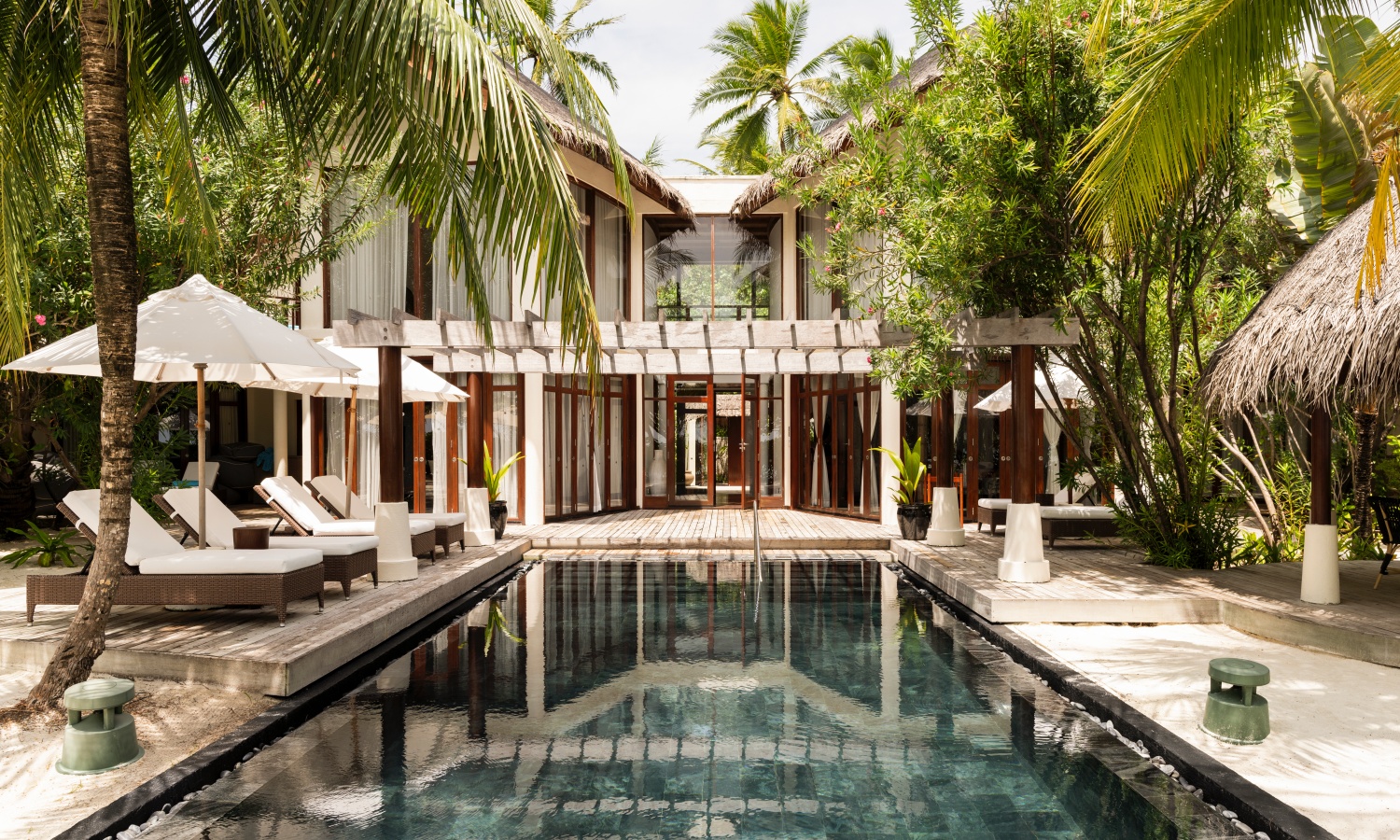
Constance Hospitality has been recognised in the 2026 Traveller Review Awards by Booking.com, with its Maldivian resorts achieving some of the highest scores within the group’s portfolio.
In the Maldives, Constance Halaveli Maldives received an outstanding score of 9.8 out of 10, while Constance Moofushi Maldives achieved 9.7. The ratings, based on verified guest reviews, reflect consistently high levels of guest satisfaction and service delivery.
Constance Halaveli Maldives, known for its spacious overwater and beachfront villas, personalised service and refined dining concepts, continues to perform strongly among travellers. Constance Moofushi Maldives, positioned as a barefoot chic resort with an all-inclusive concept, also maintains a high guest approval rating, supported by its diving experiences and relaxed island atmosphere.
While the wider Constance portfolio across the Indian Ocean was recognised, the Maldives properties stand out as the group’s highest-rated resorts in the 2026 awards cycle.
Commenting on the recognition, Jean-Jacques Vallet, Chief Executive Officer of Constance Hospitality, stated that the awards reflect the professionalism and commitment of the teams on the ground. He added that guest feedback remains central to maintaining service standards and delivering consistent experiences across the group’s destinations.
The recognition reinforces the position of Constance Halaveli Maldives and Constance Moofushi Maldives as leading performers within the Maldives’ competitive luxury hospitality sector.
Featured
Year of the Horse celebrations across Sun Siyam’s Luxury, Privé and Lifestyle resorts
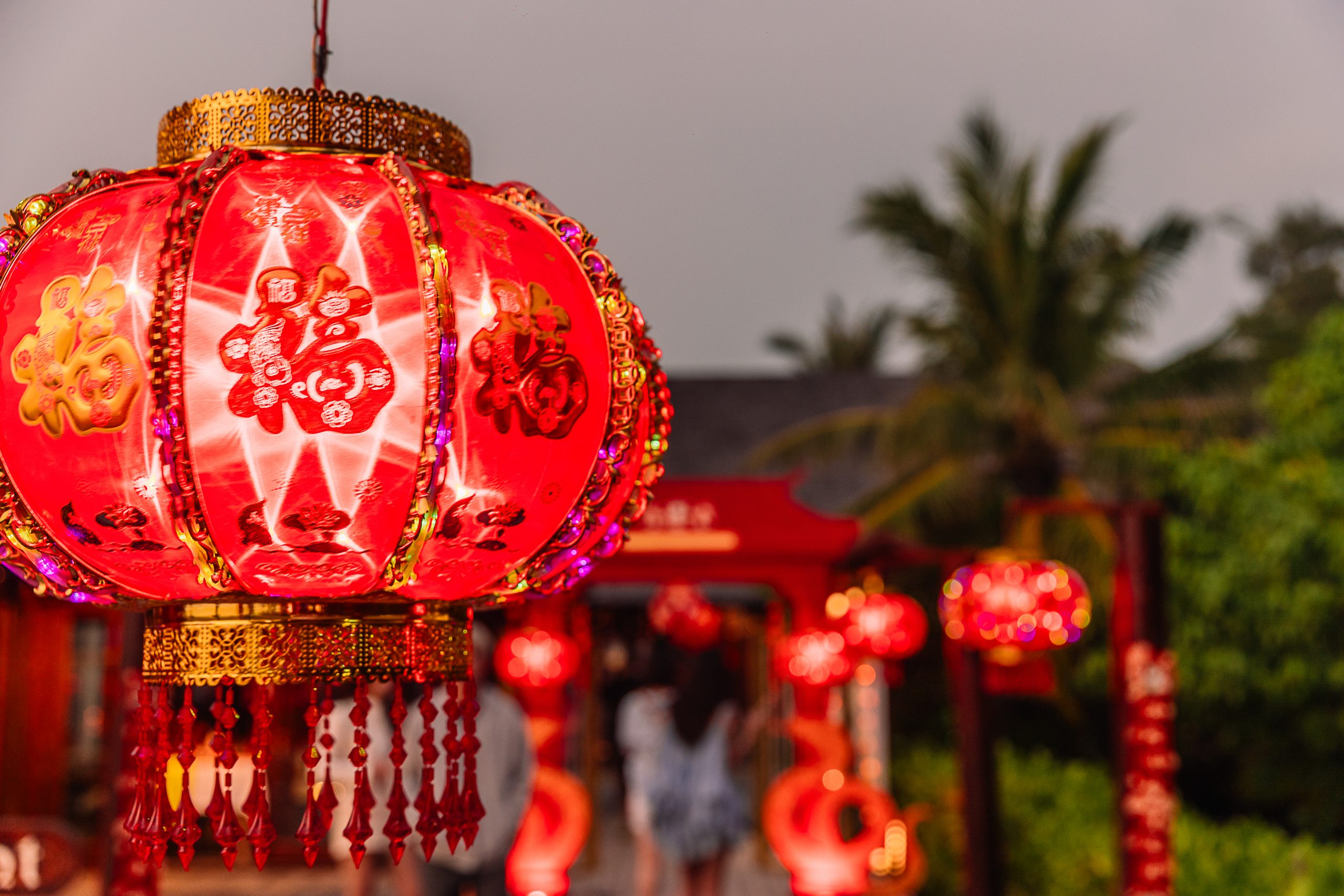
Sun Siyam Resorts is marking the Lunar New Year across its Luxury, Privé and Lifestyle collections with a coordinated programme of cultural experiences, festive dining, music and family-focused activities from 15 to 20 February 2026. Celebrating the Year of the Horse, each resort’s programme reflects its individual character while embracing the spirit of renewal and togetherness associated with the season.
Siyam World – Lifestyle Collection
At Siyam World, Lunar New Year celebrations combine cultural heritage with contemporary island energy. A highlight of the programme is a live showcase featuring Chinese-inspired DJ sets paired with the traditional guzheng, creating a fusion of electronic rhythms and classical melody. Performances by the Chaozhou Shantou lion dance troupe add further cultural depth, with guests invited to observe, participate and learn traditional movements.
Sun Siyam Olhuveli – Lifestyle Collection
Sun Siyam Olhuveli is presenting a relaxed Lunar New Year programme shaped by traditional symbolism and island living. Throughout the week, the resort will host family-friendly cultural activities, traditional performances and live music. Red-themed décor and festive elements will set the tone, while dragon displays and cultural showcases bring movement to the island’s central spaces. The celebrations peak on 16 and 17 February with performances by DJ Slim Belghith, whose international sound will accompany evening festivities.
Sun Siyam Iru Veli – Privé Collection
At Sun Siyam Iru Veli, the Year of the Horse will be marked through a programme that combines cultural traditions with family-oriented experiences. The Kids Club will host themed activities including red envelope crafting, lantern making, zodiac-inspired art and traditional games. The Fire Horse Pool Party at Chemistry will bring families together with music and refreshments. Dining highlights include hot pot lunches and dinners, along with a dedicated Chinese section titled “Flavours of Fortune” at the Aqua Orange buffet. Guests may also enjoy seasonal spa treatments at Ocean Spa designed to promote balance and renewal.
Sun Siyam Vilu Reef – Privé Collection
Sun Siyam Vilu Reef will conclude its celebrations with a Grand Spring Gala Dinner featuring international cuisine alongside Chinese specialities. The evening includes a traditional lion dance performance, filling the island with movement and symbolic gestures intended to welcome prosperity and good fortune.
Sun Siyam Iru Fushi – Luxury Collection
At Sun Siyam Iru Fushi, Lunar New Year celebrations will blend Chinese traditions with Maldivian island experiences. Dining features include beachfront seafood platters, Blue Lobster barbecues and traditional hot pot dinners, complemented by chocolate, cheese and champagne tastings.
Younger guests may take part in dragon dance workshops and lantern painting sessions, while signature resort experiences such as Sunset Jet Car rides, Cinema by Moonlight on a private boat and floating breakfasts add further variety. Evening turndown moments incorporate local Maldivian touches, reflecting the resort’s approach to cultural exchange. With 15 dining venues, family-oriented villas and dedicated adults-only spaces, the resort’s programme is designed to accommodate a broad range of guests.
Commenting on the celebrations, Ahmed Naufal, Group Director of Business Development, noted that China remains an important market for Sun Siyam. He stated that the Lunar New Year celebrations provide an opportunity to honour Chinese traditions while delivering experiences consistent with the group’s standards of hospitality.
Across its Maldivian portfolio, Sun Siyam Resorts presents Lunar New Year as a season of cultural appreciation, shared celebration and renewal by the sea.
Action
LUX Tennis joins St. Regis Maldives Vommuli to expand active lifestyle programme
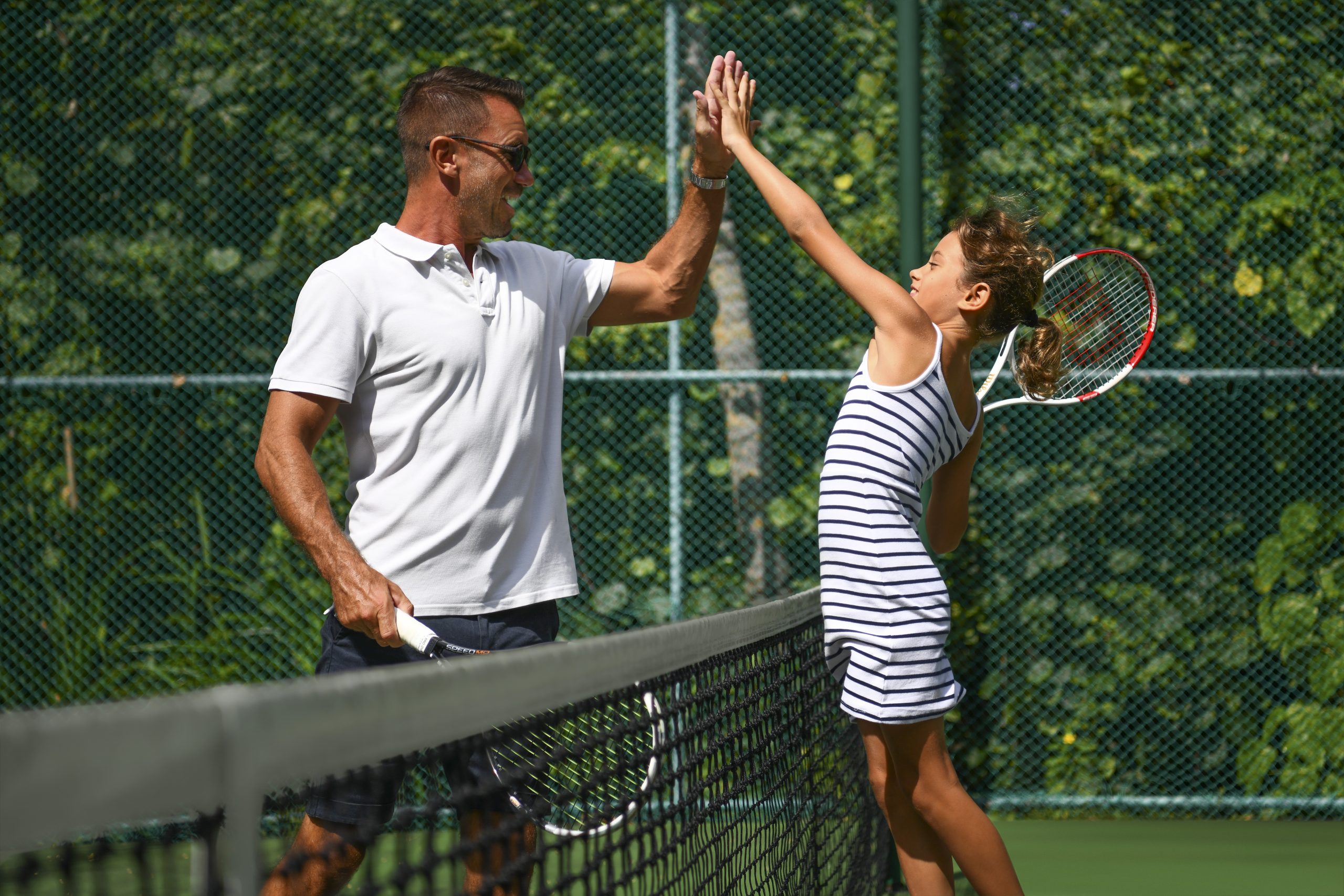
St. Regis Maldives Vommuli Resort has announced a partnership with LUX Tennis, strengthening the resort’s established tennis offering and introducing plans for a new padel court. The collaboration expands the resort’s active lifestyle programme, with a particular focus on families and multi-generational travel.
The St. Regis brand draws on the legacy of the Astor family, founders of the original St. Regis New York, whose Gilded Age lifestyle celebrated refined leisure and sporting pursuits. Tennis, in particular, became a symbol of elegance within the Astor social circle, reflecting a culture shaped by hospitality, recreation and sophistication. This heritage continues across the St. Regis portfolio today, where classic sports remain an integral part of the brand’s identity.
Set within the resort’s private island environment, the enhanced LUX Tennis programme is designed to elevate on-island tennis experiences for guests of all ages and skill levels. The programme features expert-led coaching, bespoke clinics and visiting residencies by internationally recognised professionals, offering guests opportunities to train, play and engage with elite talent in an accessible and inspiring setting.
Confirmed visiting professionals include Angelique Kerber, three-time Grand Slam champion and former world number one, who will visit from 29 to 31 March 2026, and Feliciano López, former Spanish champion with a career-high singles ranking of world number 12, scheduled from 16 to 17 May 2026.
The expanded tennis programme is designed to integrate seamlessly with island life, offering everything from relaxed family matches and junior-friendly coaching to more focused sessions for experienced players. Activities are structured to complement time spent at the beach, spa experiences and family dining.
The St. Regis Maldives Vommuli Resort features 77 beachfront and overwater villas, each with a private pool, alongside facilities such as the John Jacob Astor Estate, the largest overwater three-bedroom villa in the Maldives. Guests also have access to the award-winning Iridium Spa, six dining venues and a private yacht available for charter, reinforcing the resort’s positioning as a destination for both leisure and active pursuits.
-
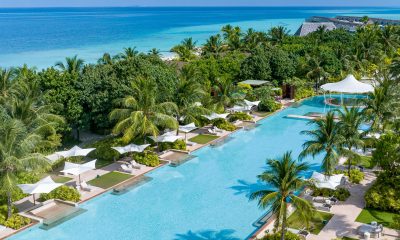
 Culture1 week ago
Culture1 week agoKuda Villingili presents family-focused Eid al-Fitr experience in Maldives
-
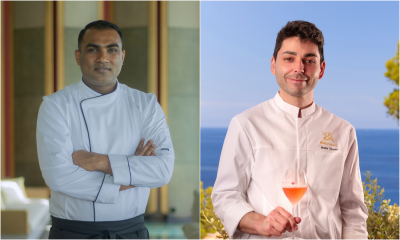
 Cooking1 week ago
Cooking1 week agoMichelin-starred Chef Jaume collaborates with One&Only Reethi Rah’s TAPASAKE for four-hands dinner
-
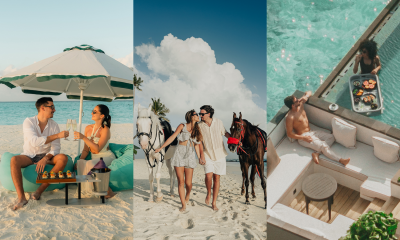
 Featured1 week ago
Featured1 week agoSun Siyam Resorts marks Valentine’s season with multi-resort celebrations
-
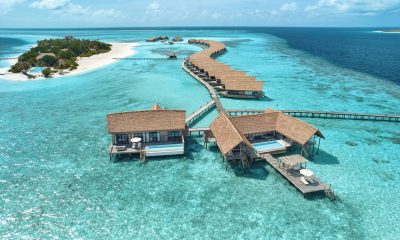
 Love1 week ago
Love1 week agoCOMO Cocoa Island, COMO Maalifushi unveil Lunar New Year, Valentine’s Day celebrations
-
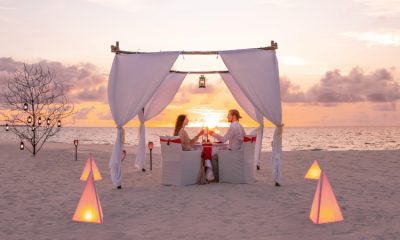
 Featured1 week ago
Featured1 week agoCoco Bodu Hithi and Coco Palm Dhuni Kolhu curate distinct Valentine’s escapes
-
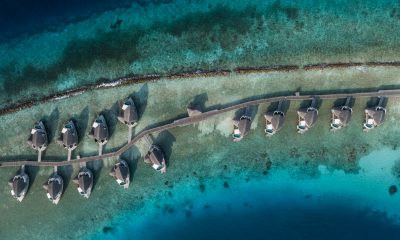
 News7 days ago
News7 days agoJW Marriott Maldives Resort & Spa invites families to celebrate Eid Al-Fitr in island luxury
-
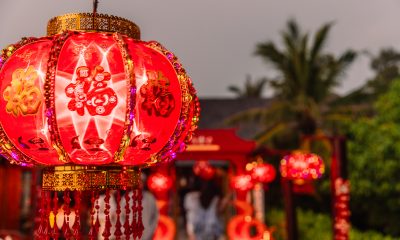
 Featured5 days ago
Featured5 days agoYear of the Horse celebrations across Sun Siyam’s Luxury, Privé and Lifestyle resorts
-
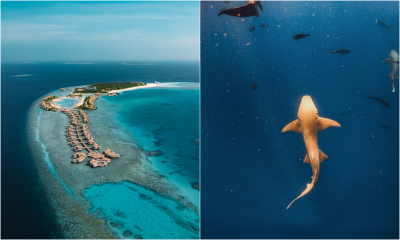
 Action7 days ago
Action7 days agoInterContinental Maldives Maamunagau Resort launches ‘Swim with Nurse Sharks’ experience








